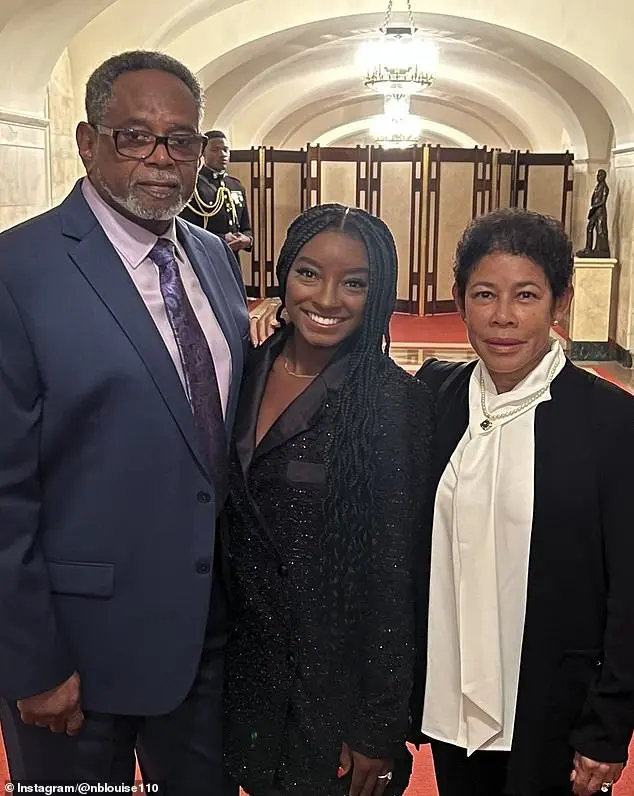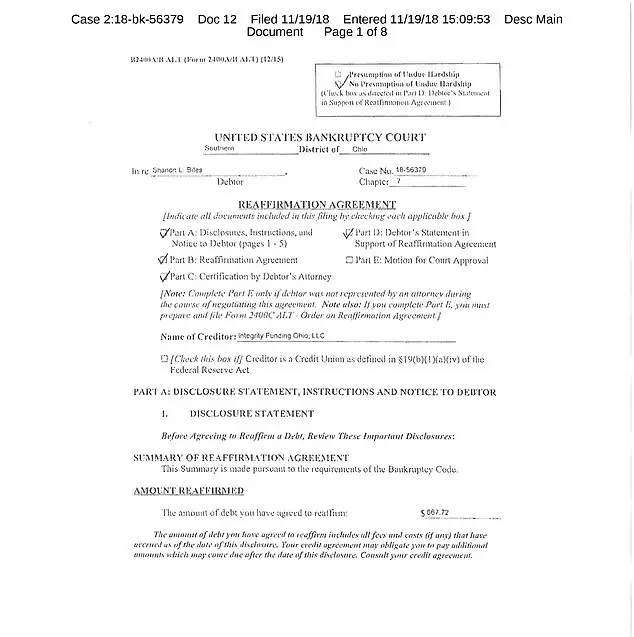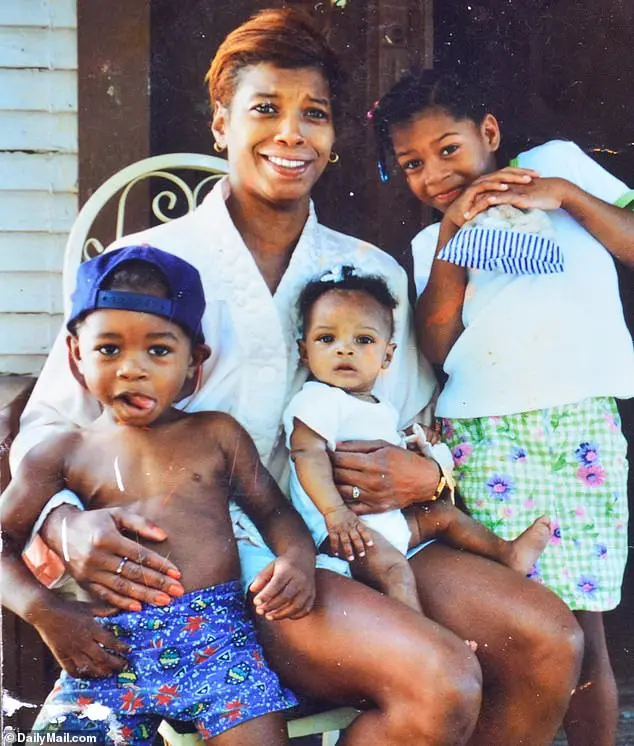In the glittering world of Olympic glory, where Simone Biles has redefined the boundaries of human potential with her gravity-defying flips and unyielding spirit, few stories capture the raw essence of resilience quite like her own. The 28-year-old gymnast, who clinched three gold medals at the Paris 2024 Olympics—bringing her total to an astonishing 11—stands as a beacon of triumph over adversity. Yet beneath the medals and the cheers lies a deeply personal narrative of abandonment, reconciliation attempts, and a profound choice to embrace peace over proximity. At its heart is Shanon Biles, Simone’s birth mother, whose shadow from a turbulent past continues to echo in the champion’s life, even as Simone charts her path forward with grace and finality.

Simone’s ascent to stardom began in the unlikeliest of cradles: the foster care system of Spring, Texas. Born on March 14, 1997, in Columbus, Ohio, she entered the world amid chaos. Her biological mother, Shanon, battled severe drug addiction, a struggle that spiraled out of control following the death of Shanon’s own grandmother, a stabilizing force in her life. By the time Simone was three years old, neglect had become the norm. Shanon, overwhelmed and ensnared by heroin and cocaine, made the agonizing decision to relinquish her four children—Simone and her siblings—to the care of relatives. “I was on drugs, and I just knew that I wasn’t capable of taking care of them,” Shanon later reflected in a candid interview, her voice carrying the weight of decades-old regret. Those words, spoken with a tremor of vulnerability, reveal a woman haunted by choices she could not unmake.
The siblings were scattered across the family tree until they landed with Ronald and Nellie Biles, Shanon’s sister and her husband. Ronald, a retired air force veteran, and Nellie, an entrepreneur with a nurse’s compassion, adopted Simone and her younger sister Adria in 2000, transforming a foster placement into a forever home. It was here, in the stability of the Biles household, that Simone discovered gymnastics at age six during a daycare field trip. What started as a whim blossomed into an obsession, fueled by the couple’s unwavering belief in her potential. They built World Champions Centre, a state-of-the-art gym in Houston, not just for Simone but as a legacy for aspiring athletes. Ronald’s steady guidance and Nellie’s fierce advocacy became the anchors Simone needed, allowing her to soar while quietly processing the voids left by her early years.

Publicly, Simone has always been a fortress of positivity, her infectious smile masking the scars she carries privately. But in her 2024 memoir, “Courage to Soar: A Body in Motion, A Life in Balance”—an updated edition of her earlier work—she peels back those layers with unflinching honesty. The book delves into the emotional labyrinth of her origins, describing the moment she first confronted the reality of her abandonment. “I remember asking my parents about my birth mom, and they told me the truth—that she was struggling with addiction and couldn’t care for us,” Simone writes. That revelation, delivered with care by the only parents she truly knows, planted seeds of confusion that would later bloom into questions of identity and belonging. As a teenager navigating the pressures of elite competition, Simone grappled with feelings of rejection that could have derailed her focus. Instead, they forged her into a competitor who turns pain into power, much like the explosive vaults that leave audiences breathless.
The possibility of reconnection with Shanon first flickered during Simone’s meteoric rise. In 2016, as the then-19-year-old prepared for her Olympic debut in Rio, Shanon reached out through a family intermediary, expressing a desire to bridge the gap. The timing felt like a twist of fate—or perhaps a cruel irony—amid the whirlwind of media scrutiny and training regimens. Simone, ever the pragmatist, extended an olive branch, meeting her birth mother for the first time since infancy. The encounter unfolded in a quiet Ohio setting, far from the roar of arenas, but it carried the intensity of a lifetime compressed into hours. Shanon, now in recovery and raising her own family, arrived with hopes of mending what time had frayed. “I just wanted to tell her how proud I am and how sorry I am for everything,” Shanon shared afterward, her eyes welling with unshed tears. In that moment, the air hummed with unspoken what-ifs: Could biology rewrite history? Would forgiveness dissolve the barriers built by years apart?

For Simone, the meeting was a mosaic of emotions—curiosity laced with caution. She listened, absorbed, and ultimately chose boundaries over blind reunion. “I have already forgiven her for what happened when I was younger because I needed to for my own peace of mind,” Simone confided in a subsequent podcast appearance, her tone steady yet laced with quiet resolve. “I wish her the best in life. I really do. I just know our lives are just too different now.” Those words, delivered with the poise of someone who has stared down Yurchenko double-pikes and mental health reckonings alike, underscore a maturity beyond her years. Forgiveness, for Simone, is not a gateway to entanglement but a deliberate release, allowing her to honor her past without letting it dictate her present. It’s a perspective that resonates deeply in an era where social media amplifies every family fracture, turning private pains into public spectacles.
Shanon’s side of the story adds poignant depth to this tapestry. Sober for over a decade and working as a cashier in Columbus, she has rebuilt her life brick by brick, channeling her energy into her other children and grandchildren. Yet the ache for Simone persists, a quiet undercurrent in her daily routine. In a heartfelt conversation with a local reporter earlier this year, Shanon admitted the sting of rejection lingers, even as she respects her daughter’s autonomy. “She’s accomplished so much, and I’m her biggest fan from afar,” she said, clutching a framed photo of Simone mid-leap from the Tokyo Olympics. “I pray she finds happiness, and if that’s without me, I have to accept it.” Her candor humanizes the narrative, transforming what could be a tale of villainy into one of shared humanity—two women navigating the fallout of choices made in desperation.

As Simone eyes the 2028 Los Angeles Games, where she could etch her name even deeper into history, this chapter with Shanon serves as a reminder of the unseen forces shaping champions. It’s a story that whispers of the curiosity inherent in fractured bonds: how the echoes of absence can propel someone toward unparalleled heights, and how true strength lies not in erasure but in selective embrace. Fans who have followed Simone’s journey—from her viral “twisties” battle in Tokyo to her triumphant return in Paris—find in this revelation a fuller portrait of the woman behind the athlete. She is not just a record-breaker; she is a survivor who has alchemized abandonment into agency.
In the end, Simone Biles’ path forward is a testament to self-defined family. Ronald and Nellie remain her north star, their love the unshakeable foundation upon which empires are built. And while the door to Shanon may remain gently closed, the act of forgiveness swings wide the gates to Simone’s own future—one flip, one breath, one medal at a time. As she continues to inspire millions, her story invites us all to reflect on our own hidden scars, urging a collective nod to the quiet power of letting go.






